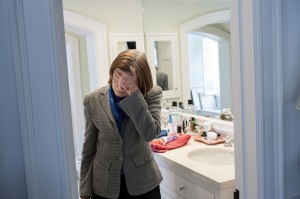Secrecy vs. Privacy: The Danger of Silence by Dr. Laurel Coleman
May 11, 2015
Guest Blogger:
Laurel Coleman MD
They are the words we do not want to hear. A diagnosis of Alzheimer’s Disease or a related dementia will change everything, even when one suspects it. As a physician who delivers this difficult news on a regular basis, I am always sensitive to the reaction of the person living with dementia and the family/care partners. Some people immediately ask for more information- the “what next” questions. Others grow quiet, and I suggest coming back another time to talk more after they have time to read and think.
Secrecy comes up frequently. Sometimes it is in the form of a request from a family member not to tell the patient. In almost all of those circumstances, we arrive at an understanding of the importance of knowing the diagnosis. If I have a stalemate with the family member requesting that I not share the diagnosis, then I at least ask the patient a question- “If I had important information about your health, would you want me to tell you?” I can only recall one instance where a person declined to know. As a general rule, people deserve to hear information like this presented clearly and compassionately, because it will profoundly affect their life.
In 23 years of practice as a geriatrician, I have seen a wide variety of reactions to a dementia diagnosis. While this is similar to other serious illnesses, it is also unique because of the clear need get support from another person. Additionally, there is a time sensitive opportunity to involve the person living with dementia in advance care planning by eliciting their preferences.
If a person only wants to share the diagnosis with a few close friends and family, that is fine. If they want to go to every neighbor and close friend to tell them that they have Alzheimer’s and “might forget their name sometimes” (as one of my patients did), that is fine. However it is not fine or acceptable to try hide the diagnosis from everyone. That is not possible or wise, given the nature of the disease process.
An additional reason to share the diagnosis with a wider circle of family and friends is that it diminishes the stigma of Alzheimer’s and decreases the isolation that many experience. This is also true for care partners who need support in their journey. Silence, secrecy and isolation only diminish quality of life and add to stress and likely negative health outcomes for everyone involved.
Dealing with a diagnosis of dementia is a process, it is done over some time. We need to try to provide the kind of support that reassures and supports the person living with dementia for the best possible quality of life. This means that “one size fits all” is not wise. Sensitivity to privacy is important, but gently moving toward some acceptance and transparency is good for all of us.
